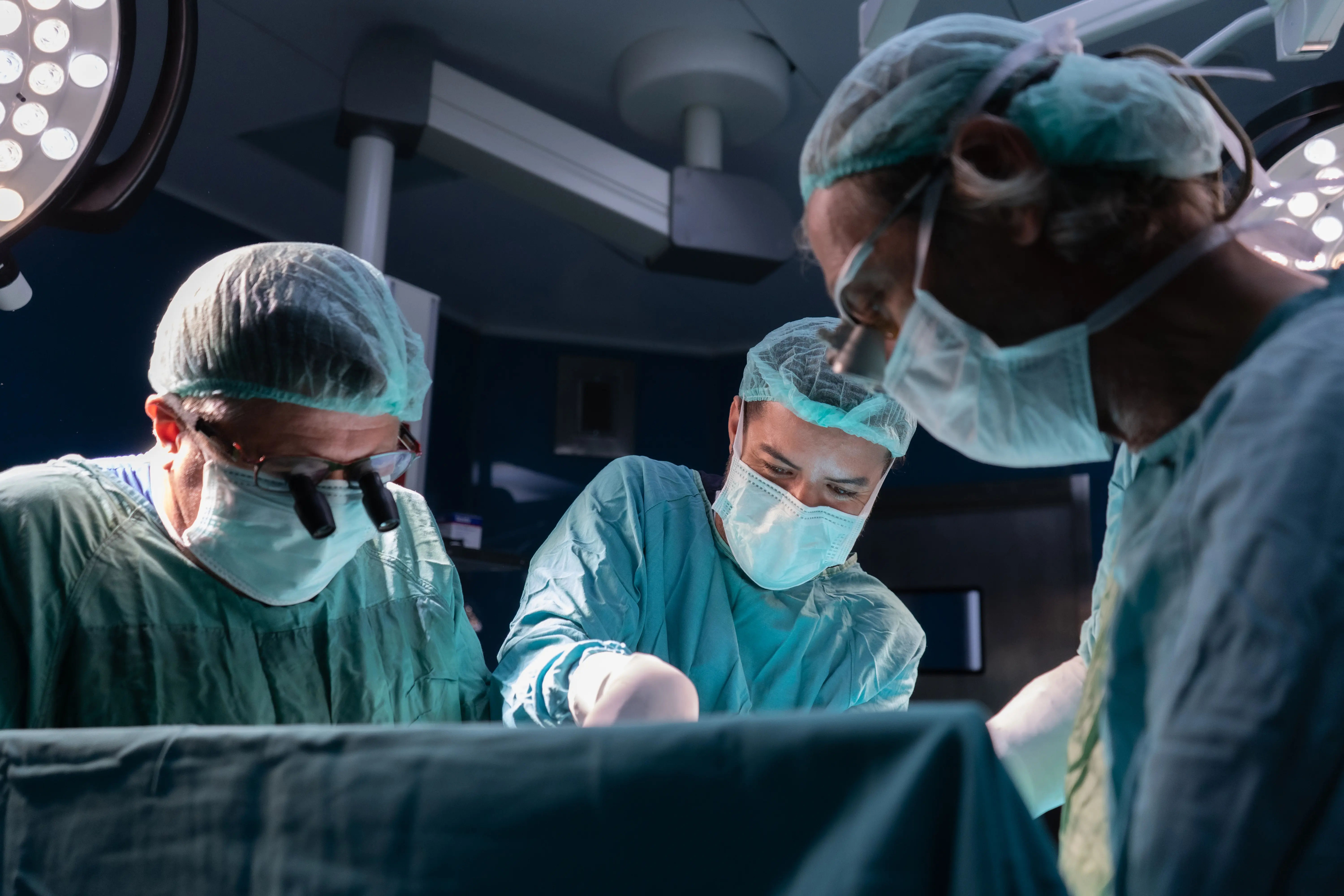How Long Does It Take To Do An Angioplasty?
Wondering how long angioplasty takes and what to expect? Learn about the procedure duration, recovery time, and helpful tips for a smooth and safe recovery.

Written by Dr.Sonia Bhatt
Last updated on 3rd Jul, 2025

Introduction
If you or a loved one has been advised to undergo an angioplasty, you might be wondering how long the procedure takes and what to expect. Angioplasty is a common and minimally invasive procedure used to treat blocked or narrowed arteries, usually in the heart. Understanding the process can help ease any anxiety you may have.
What Is Angioplasty?
Angioplasty, also known as percutaneous coronary intervention (PCI), is a procedure used to open blocked or narrowed coronary arteries—the blood vessels that supply oxygen-rich blood to the heart. A small balloon is inflated inside the artery to widen it, and often, a stent (a tiny mesh tube) is placed to keep the artery open.
Consult Top Specialists for Personalised Heart Health Advice
How Long Does the Procedure Take?
The duration of an angioplasty depends on several factors, including the number of blockages, the complexity of the case, and whether a stent is placed. On average:
Simple Angioplasty (Single Blockage): 30 minutes to 1 hour.
Complex Angioplasty (Multiple Blockages): 1 to 2 hours or more.
However, the total time spent in the hospital will be longer, as you’ll need preparation before the procedure and recovery time afterward.
Breakdown of the Timeline:
To help you better understand the process, here’s how your angioplasty journey typically unfolds.
1. Preparation (1-2 hours):
This phase involves getting you ready for the procedure.
You’ll be asked to change into a hospital gown.
An IV line will be inserted to administer fluids and medications.
The doctor will explain the procedure and answer any questions.
2. The Procedure (30 minutes to 2 hours):
This is the main phase where the blocked artery is treated.
You’ll be given mild sedation to help you relax, but you’ll remain awake.
A catheter (thin tube) is inserted through a small incision, usually in the wrist or groin.
The doctor guides the catheter to the blocked artery using X-ray imaging.
A balloon is inflated to widen the artery, and a stent may be placed.
3. Recovery (4-6 hours or overnight):
Once the procedure is complete, you’ll be observed for a few hours to ensure everything is stable.
You’ll be monitored in a recovery room to ensure there are no complications.
If the procedure was done through the wrist (radial approach), you may be discharged the same day.
If the groin was used (femoral approach), you may need to stay overnight.
What Affects the Duration of Angioplasty?
Several factors can influence how long the procedure takes:
Number of Blockages: More blockages mean a longer procedure.
Stent Placement: If a stent is needed, it may add a few extra minutes.
Patient’s Health Condition: Complications like excessive bleeding or artery spasms can prolong the process.
Experience of the Doctor: Experienced cardiologists may complete the procedure faster.
Recovery After Angioplasty
While the procedure itself is relatively quick, recovery is crucial. Here’s what to expect:
1. Immediate Recovery (First 24 Hours)
Right after the procedure, rest is key to preventing complications.
You’ll need to lie still for several hours to prevent bleeding from the insertion site.
Avoid any physical exertion during this period.
2. First Week
As your body begins to heal, you’ll gradually resume light activity.
Slowly return to normal routines under your doctor’s guidance.
Take medications on time, especially blood thinners.
3. Long-Term Recovery
Lifestyle changes are essential to prevent future blockages and maintain heart health.
You may be enrolled in a cardiac rehabilitation program.
Focus on heart-healthy habits like diet, exercise, and quitting smoking.
Tips for a Smooth Recovery
Taking proper care of yourself after angioplasty can help speed up recovery and reduce the risk of complications. Here are some practical tips:
1. Take Medications as Prescribed: Blood thinners and other medications help prevent clots and complications.
2. Stay Hydrated: Drinking water helps flush out the contrast dye used during the procedure.
3. Avoid Strenuous Activities: Give your body time to heal before resuming heavy workouts.
4. Follow Up with Your Doctor: Regular check-ups ensure your heart stays healthy.
When to Seek Medical Help
While angioplasty is generally safe, contact your doctor if you experience:
Chest pain or discomfort
Swelling, bleeding, or pain at the catheter insertion site
Fever or signs of infection
Shortness of breath
Conclusion
An angioplasty is a quick and effective procedure to restore blood flow to the heart. While the actual process takes 30 minutes to 2 hours, the total hospital stay may be longer due to preparation and recovery. Following your doctor’s advice and making healthy lifestyle changes can help ensure long-term heart health.
If you or someone you know needs an angioplasty or a heart health check-up, consider booking a consultation with a cardiologist through Apollo 24|7 for expert care and guidance.
Consult Top Cardiologists
Consult Top Specialists for Personalised Heart Health Advice

Dr. Anand Ravi
General Physician
2 Years • MBBS
Bengaluru
PRESTIGE SHANTHINIKETAN - SOCIETY CLINIC, Bengaluru
Dr Moytree Baruah
Cardiologist
10 Years • MBBS, PGDCC
Guwahati
Apollo Clinic Guwahati, Assam, Guwahati

Dr. Tripti Deb
Cardiologist
40 Years • MBBS, MD, DM, FACC, FESC
Hyderabad
Apollo Hospitals Jubilee Hills, Hyderabad

Dr. Zulkarnain
General Physician
2 Years • MBBS, PGDM, FFM
Bengaluru
PRESTIGE SHANTHINIKETAN - SOCIETY CLINIC, Bengaluru

Dr. Janjirala Seshivardhan
Cardiologist
7 Years • MBBS,DNB(GM),DM(Cardiology)
Manikonda Jagir
Apollo Clinic, Manikonda, Manikonda Jagir
Consult Top Cardiologists

Dr. Anand Ravi
General Physician
2 Years • MBBS
Bengaluru
PRESTIGE SHANTHINIKETAN - SOCIETY CLINIC, Bengaluru
Dr Moytree Baruah
Cardiologist
10 Years • MBBS, PGDCC
Guwahati
Apollo Clinic Guwahati, Assam, Guwahati

Dr. Tripti Deb
Cardiologist
40 Years • MBBS, MD, DM, FACC, FESC
Hyderabad
Apollo Hospitals Jubilee Hills, Hyderabad

Dr. Zulkarnain
General Physician
2 Years • MBBS, PGDM, FFM
Bengaluru
PRESTIGE SHANTHINIKETAN - SOCIETY CLINIC, Bengaluru

Dr. Janjirala Seshivardhan
Cardiologist
7 Years • MBBS,DNB(GM),DM(Cardiology)
Manikonda Jagir
Apollo Clinic, Manikonda, Manikonda Jagir




